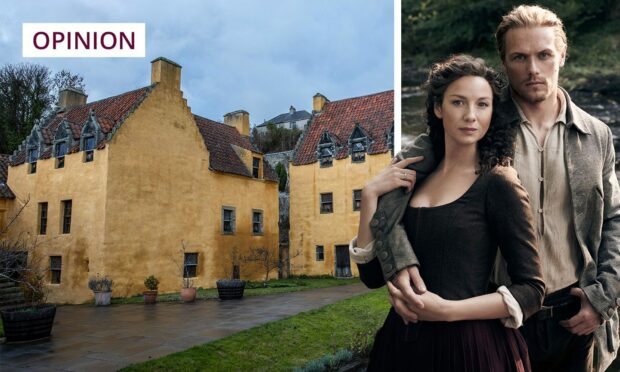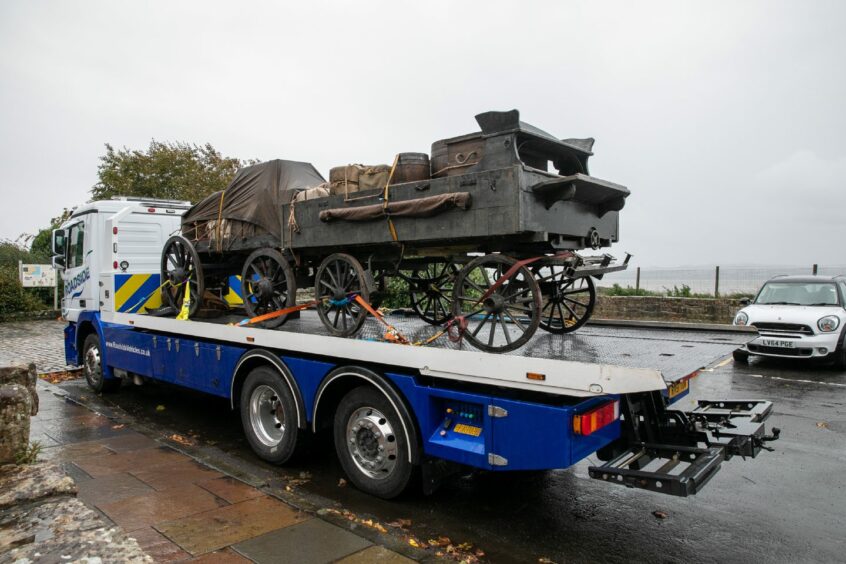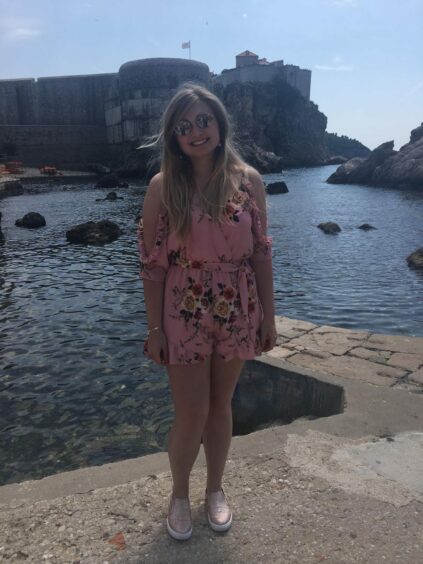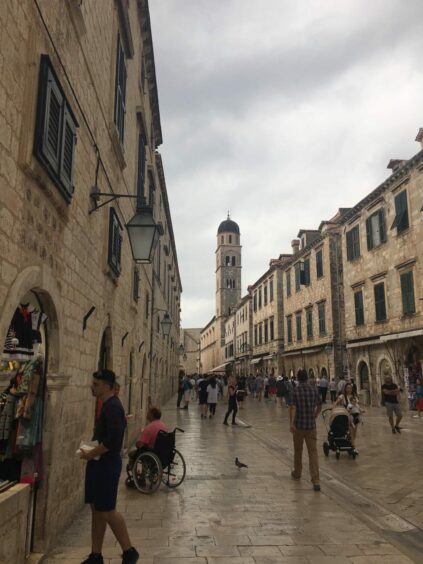Like most grandfathers, my papa was a man forever giving advice – whether you asked for it or not.
His favourite was a wee nugget he’d drop with an infuriatingly knowing smile, like he was in on a joke I wasn’t old enough to get.
“Listen hen,” he’d say. “All you need to do to have a good life, is play the game.”
For a long time, I didn’t like that advice.
“Playing the game” to me felt deceptive, or even a bit calculating.
But the older I get, the more I see that if life’s a game, it’s better to approach it as such – and playing it willingly is about accepting your reality, and deciding to make it the most fun it can be.

Croatians were historically good at this, according to the tour guide I had in Dubrovnik back in 2018.
Caught in the middle war between Ottoman and Roman empires, the medieval city had a wonderfully sleekit range of medieval religious iconography – with Islamic prophets facing east, and Christian saints facing west.
It meant that while the two sides raged, merchants in Dubrovnik profited from each. They saw the game, and played to win.
Outlander changed the game for Culross
This week, while reading how tiny Fife village Culross has become over-run with TV tourists as hit show Outlander starts filming its seventh season there, my papa’s advice came echoing back to me: Culross, play the game.
It’s not that I don’t sympathise with the people of Culross – I truly do.
It must feel like winning the worst kind of lottery, if you pick a quiet, serene place to live and suddenly the biggest TV phenomenon out of your nation is driving tourists down your street in their droves.
And there’s no doubt that the village’s fragile infrastructure really is struggling to cope, between roads being closed off for filming, prop wagons popping up left, right and centre, and a 136% increase in tourist footfall since the show aired.
Economic boosts are great, but only if there’s a town left to benefit from them, right?
But aiming to preserve the Culross of pre-Outlander days would be a bit like trying to play chess on a Monopoly board.
The game’s changed for Culross. So the village has to play according to the new rules.
Dubrovnik proved you have to play to win
The same thing happened to Croatian city Dubrovnik in 2011; the game changed, to one of Thrones.
What was once known to locals as Kolorina Bay became the world-famous Kings Landing in 2011 when the series aired.
Overnight, tourism in the ancient (and remarkably small) city increased by around 5,000 visitors per month. And by the time I visited in 2018? The whole coast was playing along.
There were tour guides offering Game of Thrones walking tours, street vendors flogging handmade paintings of dragons; there was an island with a real-life iron throne, charging a small fortune just to get off the boat, never mind see the throne.
The city’s main street, with its medieval architecture and stark smoothness – they outlawed balconies on it when one fell down and crushed some people – was such a popular filming location that it had almost no residents, with homeowners renting out the flats on it for extortionate rates to big-budget productions including Star Wars: The Last Jedi.
And it wasn’t just commercially that the city had embraced its gimmick; the locals had taken the cast and crew to their hearts, too.
You couldn’t swing a shadowcat for Game of Thrones paraphernalia, crowded into windowsills, doodled on restaurant chalkboards or punned into cocktail menus.
One water-taxi driver even had a ringbinder full of photographs of himself and actors like Kit Harrington and Emilia Clarke, which he passed around the little boat each day as he took people across the water from Dubrovnik to its surrounding villages.
Instead of resisting or becoming fearful of the thing that threatened to ‘ruin’ quaint, historic Dubrovnik, the locals accepted and embraced the new rules of the game – and it paid off massively.
Culross should follow Croatia’s lead, and turn coping into winning by playing the game.
















Conversation